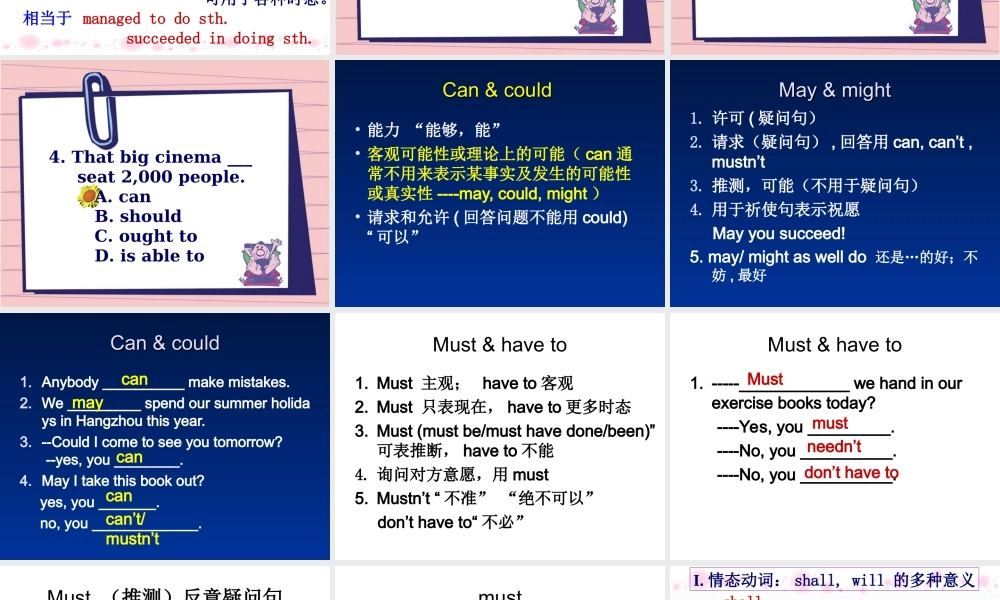Grammar Modal Verbs I. 情态动词的语法特征1. 情态动词不能表示正在 发生或已经发生的事情, 只表示期待或估计某事 的发生。2. 情态动词除 ought 和 have 外 , 后面只能接不带 to 的 不定式。 3. 情态动词没有人称 , 数的 变化,即情态动词第三 人称单数不加 s 。4. 情态动词没有非谓语形 式,即没有不定式分词 等形式。 情态动词表示推测不表示推测can couldmay mightshall shouldmust will wouldought tohave to dare (daren’t)need (needn’t) used to 1. 表示能力、许可的情态动词的用法。 表示能力 : can, could, be able to be able to 能用于各种时态 ; can / could 只有现在时和过去时; 表示现在或过去的能力。 was / were able to “ 设法做成某事” 指经过努力才能做到; 可用于各种时态。 相当于 managed to do sth. succeeded in doing sth. 1. A computer _____ think for itself; it must be told what to do. A. can’t B. couldn’t C. may not D. might not 3. They will ______ run this machine on theirown in three months.A.can B. could C. may D. be able to 4. That big cinema ___ seat 2,000 people. A. can B. should C. ought to D. is able toCan & could Can & could • 能力 “能够,能”• 客观可能性或理论上的可能( can 通常不用来表示某事实及发生的可能性或真实性 ----may, could, might )• 请求和允许 ( 回答问题不能用 could) “ 可以”May & mightMay & might1. 许可 ( 疑问句)2. 请求(疑问句) , 回答用 can, can’t , mustn’t3. 推测,可能(不用于疑问句)4. 用于祈使句表示祝愿 May you succeed!5. may/ might as well do 还是…的好;不妨 , 最好Can & couldCan & could1. Anybody __________ make mistakes.2. We _________ spend our summer holidays in Hangzhou this year.3. --Could I come to see you tomorrow? --yes, you ________.4. May I take this book out? yes, you _______. no, you _____________.canmaycancancan’t/ mustn’t Must & have to1. Must 主观; have to 客观2. Must 只表现在, have to 更多时...




